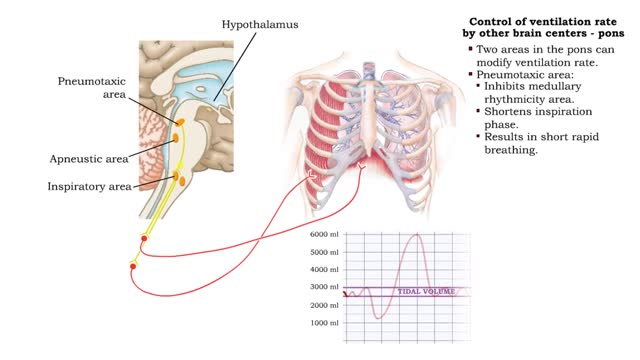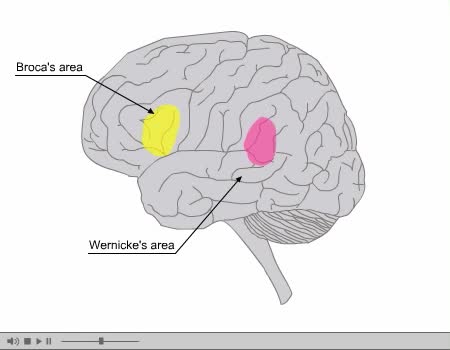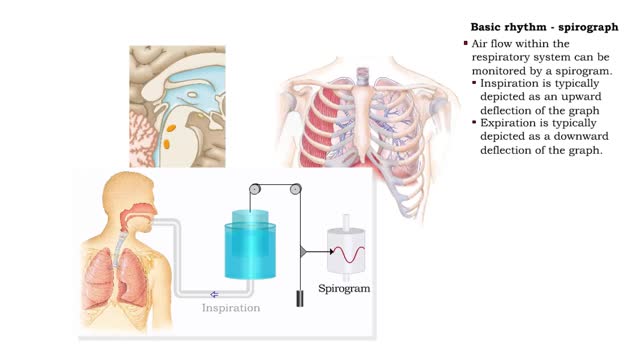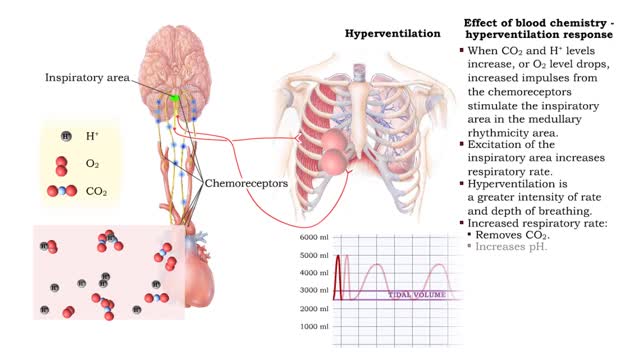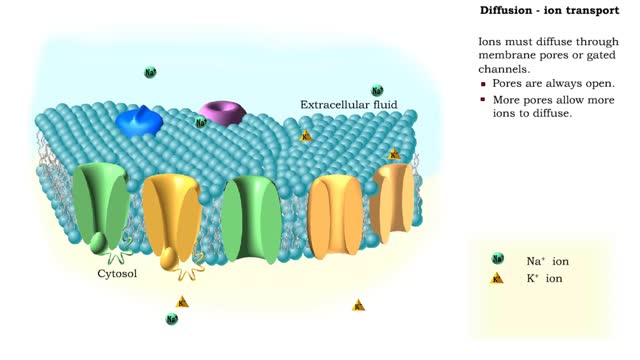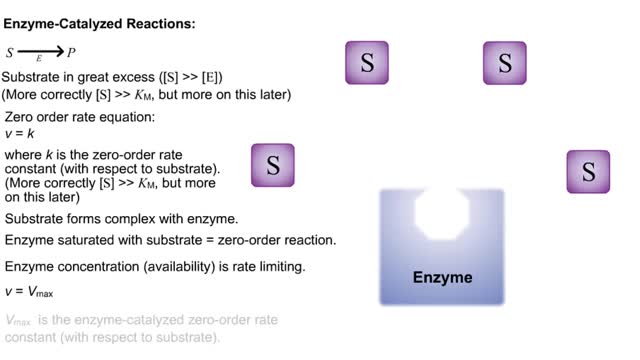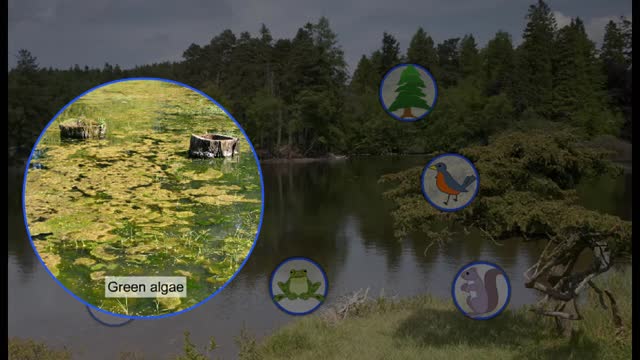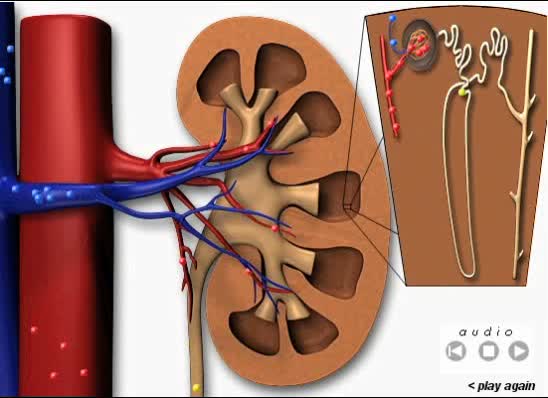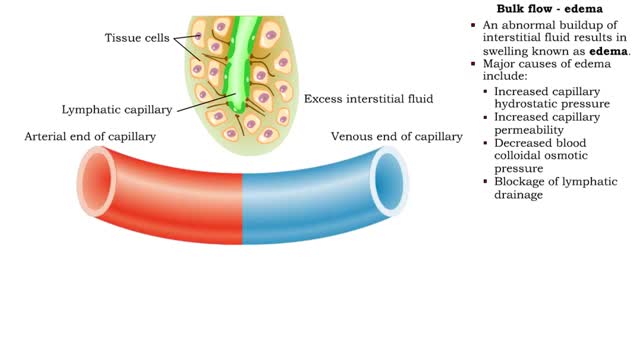Search Results
Results for: 'Apneustic area'
Control of ventilation rate by other brain centers (posts, hypothalamus & cerebral cortex)
By: HWC, Views: 11037
Forced ventilation: • The inspiratory area stimulates accessory inspiratory muscles. • Inspiration is more forceful. • Inspiratory area activates expiratory area, which sends impulses to the expiratory muscles (internal intercostals and abdominal muscles). • Expiration muscles c...
By: Administrator, Views: 14308
Specific language areas of the brain. Many cortical (and non-cortical!) regions are involved in language processing. The primary language pathway begins in Wernicke’s area (posterior temporal lobe), which receives information from the auditory and visual cortices and assigns meaning (= lang...
Basic rhythm - control centers in medulla oblongata, spirograph and normal tidal cycle
By: HWC, Views: 10975
• Normal ventilation is rhythmic and involves continuous cycles of inspiration and expiration. • Various regions of the brain closely regulate this rhythmic pattern of ventilation. • The rhythmicity area in the medulla regulates the basic rhythm of ventilation. • The medullary rhy...
Effect of blood chemistry - stimuli, hyperventilation response and hypoventilation response
By: HWC, Views: 10764
• Respiratory rate is effected by changes in: • Blood pH. • Blood Pco2. • Blood P02. • Chemoreceptors in the central and peripheral nervous systems closely monitor the Fr, CO2 and 02 levels in blood. • Changes in frequency of impulses from Chemoreceptors affect respiratory r...
Simple Diffusion - Ion transport
By: HWC, Views: 11153
In the process of diffusion, a substance tends to move from an area of high concentration to an area of low concentration until its concentration becomes equal throughout a space. Ions must diffuse through membrane pores or gated channels. Pores are always open. More pores allow more ions...
By: HWC, Views: 10599
S P Substrate in great excess ([S] -- [E]) (More correctly [S] -- KM, but more on this later) Zero order rate equation: v = k where k is the zero-order rate constant (with respect to substrate). (More correctly [S] -- KM, but more on this later) Substrate forms complex with enzyme. ...
Global warming and its effect on climate change
By: HWC, Views: 10721
Global warming, habitat destruction, and pollution are all hot topics in the news. Environmentalists are concerned that many of these factors will lead to the loss of species. But how will this happen? One way to think about the environment is as a finely-tuned, high performance engine. If one...
Blood Flow Through the Kidneys
By: Administrator, Views: 13848
Purplish-brown, bean-shaped organs located behind abdominal cavity (retroperitoneal area) on either side of spine, between thoracic vertebrae and lumbar region.
Net filtration pressure and lymph formation, edema & blood velocity
By: HWC, Views: 10969
Bulk flow -net filtration pressure and lymph formation • The net filtration pressure (NFP) is the force promoting filtration minus the force promoting reabsorption. • At the arterial end of an ideal capillary, the filtration pressures are stronger. The result: net filtration. • At t...
Advertisement



